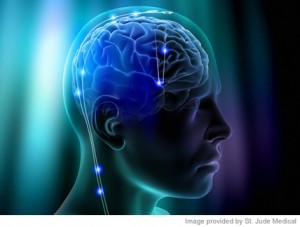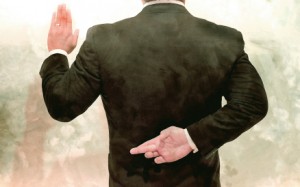Published: January 27, 2010
His or hers jealousy? Study offers new explanation for sex differences in jealousy
When South Carolina Governor Mark Sanford was caught red-handed returning from a tryst with his Argentine mistress last June, he told the Associated Press that he had met his “soul mate.” His choice of words seemed to suggest that having a deep emotional and spiritual connection with Maria Belen Chapur somehow made his sexual infidelity to his wife Jenny Sanford less tawdry.
What the two-timing governor didn’t understand is that most women view emotional infidelity as worse, not better, than sexual betrayal. This may explain why Hillary Clinton stayed with Bill Clinton and seemed unconcerned about his sexual affair with Monica Lewinsky. Research has documented that most men become much more jealous about sexual infidelity than they do about emotional infidelity. Women are the opposite, and this is true all over the world. The prevailing theory is that the difference has evolutionary origins: Men learned over eons to be hyper-vigilant about sex because they can never be absolutely certain they are the father of a child, while women are much more concerned about having a partner who is committed to raising a family. [continue reading…]
Published: January 26, 2010
 Even with the best of available treatments, over a third of patients with depression may not achieve a satisfactory antidepressant response. Deep brain stimulation (DBS), a form of targeted electrical stimulation in the brain via implanted electrodes, is now undergoing careful testing to determine whether it could play a role in the treatment of patients who have not sufficiently improved during more traditional forms of treatment. [continue reading…]
Even with the best of available treatments, over a third of patients with depression may not achieve a satisfactory antidepressant response. Deep brain stimulation (DBS), a form of targeted electrical stimulation in the brain via implanted electrodes, is now undergoing careful testing to determine whether it could play a role in the treatment of patients who have not sufficiently improved during more traditional forms of treatment. [continue reading…]
Published: January 26, 2010
Researchers have new evidence that a simple eye test could help diagnose inherited mental health conditions such as bipolar disorder (manic depression).
Monash University neuroscientist Dr Steven Miller led a national team of researchers to test the binocular rivalry rates of 348 sets of twins — 128 of which were identical.
The test measured the twins’ binocular rivalry — the ‘switching’ of their visual perception from one image to the next, when two dissimilar images were simultaneously presented, one to each eye.
Dr Miller’s study of twins showed that switching rates were very similar between each set of identical twins, yet were substantially less so for non-identical twins, suggesting a genetic contribution to an individual’s switching rate.
“By studying such a large group of identical and non-identical twins we can determine the likelihood of genetics being responsible for certain biological traits,” Dr Miller said.
Dr Miller said testing of binocular rivalry was important because it could be an indication of a person’s mental health, based on his previous study of switching rates in patients with bipolar disorder. [continue reading…]
Published: January 26, 2010

Image: istockphoto
lthough changing social and cultural contexts mean guilt has less power today than it once did, a new study has shown that in the West this emotion is “significantly higher” among women. The main problem, according to the experts, is not that women feel a lot of guilt (which they do), but rather that many males feel “too little”.
“Our initial hypothesis was that feelings of guilt are more intense among females, not only among adolescents but also among young and adult women, and they also show the highest scores for interpersonal sensitivity”, Itziar Etxebarria, lead author of the study and a researcher at the University of the Basque Country (UPV/EHU), tells SINC. [continue reading…]


